What’s love got to do with it?
The peacock was in full courtship behavior and display with the peahens at Jahlana Leopard Reserve in Jaipur. It was just three weeks ago and we were working with our Indian colleagues to postpone the 11th World Wilderness Congress (WILD11) and “wind down” 15 months of work with our global community of experts and advocates on much needed solutions and practical outcomes. On that day we took a short break for an early evening drive through this remarkable urban reserve in Jaipur.
The unusual thing was that it was very early March. Peafowl normally court just before the rains, and the monsoon is typically June through September. Sunil Mehta whispered, “What unusual behavior. It means rain…in March?” The next day in Jaipur we had torrential thunderstorms with furious hail, even breaking the windscreen of the car next to us on the road – something hardly ever experienced in Rajasthan.
Although a March rain in Rajasthan may seem insignificant to many, it is just another data point on a mountain of evidence pointing to the destabilization of our planet.
The world is turned on its head.
We are in nothing-less than a Nature Emergency. While peafowl often call throughout the year, the behavior and tone of this group were to us more immediate, and an urgent indicator of the climate breakdown we are all experiencing. This emergency is clearly manifest and occurring all around us in random, increasing paroxysms of climate chaos: warming, cooling, melting, storming. The emergency is compounded by the 6th Mass Extinction crisis that is unraveling the biological foundation of our world. A primary cause of extinction, of course, is human-caused habitat (ecosystem) destruction, which is a major thread in the tapestry of issues that brought us the COVID-19 pandemic.
We are nature, nature is us, and no actions occur in isolation, nor go un-responded.
Ironically, WILD11 was a victim to the very subject it was programmed to address. By that I don’t mean the pandemic, per se, because that is only a symptom of the real issue: the broken relationship between people and nature. COVID-19 sprang forth from a totally legal wildlife “wet” market (so-called because animals are slaughtered on site and it is hosed down frequently). Some of them are “corner stores” with vegetables, chicken, pork, grains, and other foodstuffs, but some of them also have a significant element of farmed and other wild-caught animals – so-called bushmeat. If you’ve never been to one of these types, I don’t recommend it. Horrific. Animals of every description, both wildlife and domestic – monkeys, birds, chickens, civets, turtles, snakes, frogs, whatever – stuffed in cages piled one on top of the other, exuding fear and defecating over each other, only to be taken to a slaughter area in the same market, the floors running with blood and gore until they are hosed out again. Charming, it’s not. In addition to illegal bushmeat trade, these wet markets are supplied by a massive, legal, poorly-regulated industry of commercial wildlife farming in many Asian countries, and in Africa and India. The worst of them sell anything that grows, walks, crawls, slithers, jumps, swims, or flies
Combine such places with the following conditions and it becomes easier to visualize just how much needs to change:
- The illegal wildlife trade fueled by massive poaching, often hiding within legal wet markets;
- Increased commercialization and trade of wildlife for food, products, and profit;
- The accelerating loss of habitat and wild places due to human ‘conversion’ of wild nature for human uses;
- Human numbers at 8 billion and headed to 12, increasing human density that causes massive migration and encroachment into areas that have been wildlife havens for millennia;
- Infrastructure planning running amok, calling for 25 million km of new roads in the next 20 years, fragmenting natural areas while drastically increasing ingress of humans into wild areas;
- A doubling of urban infrastructure area.
All of this, and more, has increased human/wildlife interaction to a scale never-before experienced in history. There is nothing sustainable, respectful, or wise about this. It is madness, it is suicide. It is destroying the very nature that provides our life support and, in the process, creating ideal opportunities for animal-borne viruses to jump from declining wildlife populations to a super abundant and readily available new host—humans.
This is not fantasy, it is fact. A pandemic is not a random accident. Human impacts are the cause of this current (but not the last) pandemic, and its stark economic consequences. There are many references supporting this – try the most readable and informative, “Spillover,” by friend and noted science journalist David Quammen. In another irony, David was scheduled to address this very matter at WILD11.
Summary: People are terribly affected, our communities completely disrupted, and our global economy shattered because of our broken, abusive relationship with wild nature. We have a Nature Emergency like never before experienced…we need a Survival Revolution like never before imagined.
What could such a Survival Revolution create? In yet a further irony, let’s flip the tragic elements of the pandemic on its side and for a moment consider some of its other effects. You’ve all seen the media reports: the world is a far quieter and less polluted place; traffic jams are gone; wildlife is more evident in urban areas; people are singing from their balconies; collaboration is increasingly normal; and, for the most part and despite physical distancing, people are talking more to each other and innovating social discourse.
Thank goodness for the internet. Can you imagine what the equivalent of “sheltering in place” must have been like, starting in the 1300s as human density began to skyrocket and the Plague emerged in many episodes to devastate Europe? And then again, when the powerful and persistent 1918-1920 influenza epidemic swept around an increasingly urbanized globe.
These “other effects” of the COVID-19 pandemic looks a lot more like the world we want and need. And this is the goal of the WILD Foundation and World Wilderness Congress – a world of respectful relationships, people to people and people to nature. WILD11 called it nature-based solutions “For Life, Livelihoods and Love” because the beautiful truth is simple: nature is enough – and so are we.
Respecting nature is giving it the space (#NatureNeedsHalf) to do her thing so that we are supported to do our thing. Really respecting life – and that means applying respect to real actions – generates sustainable livelihoods that can be scaled at any level if the principles are practiced.
OK, that’s Life and Livelihoods. “What’s Love got to do with it?” as Tina Turner famously sang. Simple answer – everything. Learn to love each other and the nature that supports us, then, by default, we will create a world we want to live in, one in which nature easily does her job – support all life on Earth. The peafowl – and all the other life in the forests, soils, air and waters of our earth – will love you for it!
Join us in the Survival Revolution! Watch this space in the weeks to come as we lay the groundwork by rolling out WILD11’s many outcomes to be used as tools for the coming transformation.
Vance G. Martin is President of WILD Foundation and Wilderness Foundation Global; Founder/Co-Chair of the Wilderness Specialist Group, IUCN. As a Co-Chair for WILD11, he worked closely with the other Co-Hosts, Sanctuary Nature Foundation and the State Government of Rajasthan, and many partners and supporters in India and around the globe.
Read Next
Tech & Tradition – Q&A with Ruari Bradburn, Chief Technology Officer at Langland Conservation
“Tech & Tradition” delves into the evolving landscape of conservation, exploring the synergy between traditional wisdom and technological innovation.
Mentors Making a Difference: Phoebe and David’s Journey with CoalitionWILD
At CoalitionWILD, we believe in the power of mentorship and the transformative impact it can have on the lives of young conservationists. Here, we shine a spotlight on two exceptional repeat mentors, Phoebe Barnard and David Manski, who have been actively involved in our Global Mentorship Program. Their dedication, wisdom, and passion for conservation have inspired and guided numerous young professionals on their journey to become future leaders in the field.
Indigenous-led Conservation, a Holistic Approach – Q&A with Jordan Kennedy from Indigenous Led
Embark on an insightful exploration at the crossroads of environmental stewardship and cultural preservation through a Q&A with Jordan Kennedy.
25 Comments
Submit a Comment
 BECOME A MEMBER
BECOME A MEMBER
Join the WILD tribe today!
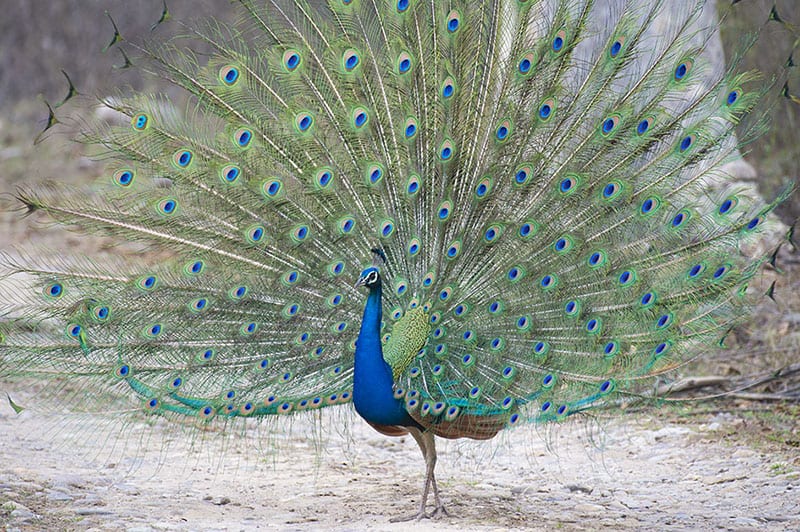
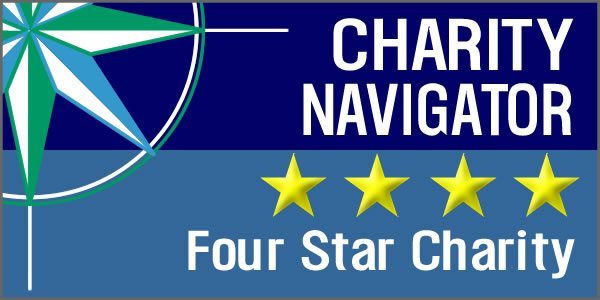

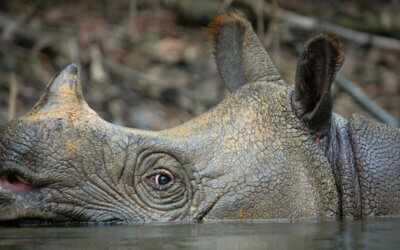
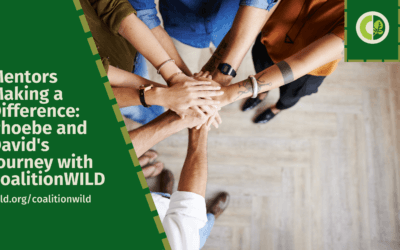
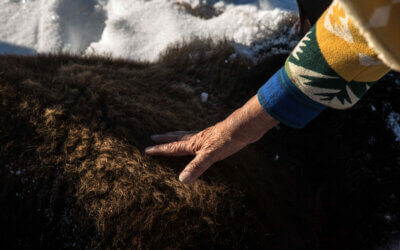

Thank you Vance, a great article.
Respectful food and industrial production systems are emerging to support intelligent human settlements in villages, towns and cities, and Intelligent economic systems that enable them are gaining traction.
The Wild Foundation and many groups and organisations are building the new systems that will grow through the wreckage and devastation that is now upon us.
Hey, thank you Angus!! Stay well, stay strong….thanks again!
Let us fight the battle of survival of wildlife as we fight for our survival and the survival of generations to come. If we declare that humans are the superior creater than is it not our responsibility to take care of our fellow creatures other than humans. Let us join hands to make the planet Earth a suitable place to live for ourself and generation to come. Let us save and conserve wildlife for our own survival
Well said, we work together for all life on earth…us included! Thank you Manzoor
Thanks Vance for that most telling and insightful commentary on what has happened and what we minions on this fragile earth must do to save our souls and those of our natural animal brethren. My wife and I were so looking forward to Wild11 this year and hope that it will be scheduled for the same time in 2021 as soon as you are able to tell us to re-register and make our travel plans. It would be so much more important to hold Wild11 quickly after this pandemic has left so that a chastened audience will feel the real impact of the need for urgency in finding sustainable solutions to our problems.
Thank you for your generous words, Prem! Our first steps are to recover from the financial impact we absorbed, which is now of course complicated by the recession, and to roll out the “products” from W11 that were almost ready to launch. We don’t want to lose all the momentum …need to keep going ! Stay tuned to this space, and thanks again!
Thank you for this update! I am inspired by the work you are doing and look forward to hearing more in the weeks ahead about the outcomes of Wild 11. I attended the two congresses that were in North America, – in Colorado and Alaska, LOVED both and dreamed of attending other ones. I’ve been very involved with a campaign in the Yukon Territory to preserve roughly 70,0000 sq kms of wilderness from development and we succeeded; the case having gone right to the Supreme Court of Canada. The process took about 30 years from start to finish. Trying to preserve wild nature in this increasingly populated world will be never ending work and diligence, and we all need as much inspiration as possible to keep going, to not give up.. The Wild Foundation offers much needed inspiration and action.. Well done! and THANKYOU!
Hey Jill….thanks for this, and THANK YOU for your work for wildness! Stay strong and well…onwards!
Lots love and all good fortune!
Nice reflections.
Thanks Chris!
Thank you, Vance, for your tireless work, love and dedication. We attended WILD9 in Mexico. Our non-profit organization, Wrangell Institute for Science and Environment (WISE), in 2013, brought 20 high school students to WILD10 in Spain. It was truly a life changing experience for all of them. They each gave a presentation on their projects for healing the earth. The leading environmentalists throughout the world gave their inspiration and encouragement for each student. One student recently completed his training on a NOAA research vessel. Your writing above brought tears to my eyes. Yes, mother Nature is sending a profound message. We need to respond and act with healing love and care to all species, land, water, sky. The WILD Foundation is critical to keep the healing momentum going. As well as other like organizations. WISE programs have shut down, but we are still busy working on different ways to spread the teaching. Again, thank you for all you do! I would like to leave you with this piece from someone who has Covid-19. I hope it’s not too long for this post. All the best as we move forward, Janelle Eklund, WISE Board member and Founder.
Amy Heron – Day 5
Recording this pandemic… and to attempt to capture this, a while gasping through the glue that is Corona, feels apt.
The deeper medicine which I feel arising through this personal and global experience, seems to be about grief. The lungs have long been associated with grief and Ms. Corona invites, no demands, us to sit very still indeed (even walking across the room is like scaling a mountain) and try to breathe through the ‘pollution’ deep in the lungs. Like sitting in a forest fire, trying to grab some oxygen. Or a traffic jam.
Ironically now and only now, the lungs of the world are beginning to fill, as the skies and the roads, the rivers and the seas clear of our rushing about. Somehow the tables have entirely turned. The earth takes a nice deep breath and we’re now flapping about gasping and flailing, like fish on the shore.
This is a pivotal moment.
My prayer/hope, on my personal day 5, is that we might come through this with a new respect for the planet and for one another as a global family, bringing about a new balance. That we might begin to work WITH nature and find, collectively, as a people, ways to harness this bounty without the ‘rape and pillage’ approach. To give as much as we take, globally, country to country and person to person. To prioritize real time with our loved ones, to turn inwards towards our elderly, our children, our communities. To slow the fuck down.
It was simply a matter of time before we were forced to stop. And here we are. Death to the patriarchy, by mother nature’s hand.
Perhaps driving people to the woods so they can sit, wrapped in blankets with flasks and be close to nature. And of course I’m worried about our elders and all those most vulnerable. But looking over and beyond that awful parapet, I see a great Phoenix rising from these particular ashes. All will be well. This might actually save our planet and our human existence upon it. But it may take a generation or two.
Think of it as ‘seed planting’ for our future on planet earth, post the great fires of industry, technology, capitalism and that grasping mentality it all amounted to, combined. Oh how easily we are undone, after all. Marvelous. Clear skies, silent factories, clean rivers, cars parked…and now we rest. Trusting this process.
The speed of our lives, the demand we have put on the planet, ourselves, on another, it wasn’t sustainable was it? And it’s time to grieve it. To acknowledge the landslide. Our collective and individual mistakes. Where we went so utterly and completely wrong.
Perhaps before the reinventing of your small business, collating materials to relaunch, slow down. Stop. Be bewildered. Feel the fear, the grief. Be empty.
I’m doing deep breathing exercise, taking massive doses of everything from Vit C to lungwort tea and back again.
Janelle! So good to hear from you and to know that WISE continues its fabulous work. And thank you for sharing Amy Heron’s piece. Our love and strength to her, you, and the team!
Great summary, Vance. Might there be a version of this year’s WILD conference convened online?
Hey Brot… thanks for that question, as we have discussed it inside out the past few weeks. At the moment we decided to not try to do this, because of several issues. While we really don’t want to lose the opportunity to experience that spirit that the Congresses generate when we all come together, we felt that until the dust settles on the pandemic there is just too much else going on. Another is that the sheer logistics in trying to do it right, with meaning, purpose, coherence and GOOD TECH infrastructure, would be both costly and logistically complicated given the financial issues we now face as a result of the postponement…after 16 months of investment and the necessary refunds of fees, donations, etc. Rather, we decided to roll out a video and a new landing page featuring some of the messages, products and outcomes of WILD11 that were just about ready to launch. So, stay tuned! Thanks
Hi Vance, great write-up. Simple and impactful, conveys our real day concerns. The postponed event held a lot of promises, to understand actions across the globe for the well being of our Mother Planet. We are seeing change happening around us, a few for the better and most not desired. Yet, we need to turn it around in the few seconds left on our hands, such that the few grows into a better world.
Monalisa, you are so right. e need to continue, now now, and the solutions are in our hands. Thank you!
The world is at crisis and this crisis has shown us the importance of respecting nature once again. The fire in Australia, floods in India, virus in the entire globe – this year has not been any better. But, WILD can and should aim at making it better. Let us restore our ecology, conserve our biodiversity, protect national parks and wildlife reserves, stop poaching, stop farming wild animals for food, turn to organic agriculture. The change essential and it is now or never!
Right there with you, Biley. Strong and good words! Thank you, onwards!
Your voice rings out loud and clear, Vance. The whole world needs to listen
Thank you Pradip. Generous words, and much appreciated. Your understanding of re-wilding — from molecular to community — is a perspective and example the world needs. Many thanks!
Hello Vance,
Thanks for your wonderful article. I was planning on registering for the Wild 11. My good friend Dr Tarun Chhabra who you know well was to make his presentation with two Toda people.
I definitely hope to attend whenever you are able to.
Thank you Ramneek. Glad you know Tarun. His example of commitment, dedication, and love of people and planet is a great inspiration to me and many people.
Postponed till when Vance? I have been writing about Cabin Fever as a result of the lockdown in South Africa. Comparing it with natural Cabin Fever from Winter and legal Cabin Fever from Covid lockdown. My brother Russell and family suffers from it in Calgary. They came out to SA for Christmas so broke the fever at The Bend Country Estate in sight of Kamberg a holy Drakensberg mountain which is in my Wild 11 proposal.
Thank you Ramneek. Glad you know Tarun. His example of commitment, dedication, and love of people and planet is a great inspiration to me and many people.
Hey Malcolm….wish I could give you a date and place. There is so much static and dust in the global air we need to wait til it settles. And of course, there is the financial side — we took quite an impact. All will resolve in due course. Say hello to the Berg for me!